Maude Barlow
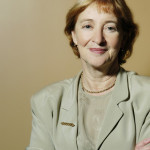
April 2011
The Global Water Crisis and the Coming Battle for the Right to Water
Maude Barlow is considered by many to be one of the world’s leading experts on water issues. “This notion that we’ll have water forever is wrong. California is running out. It’s got 20-some years of water,” she says. Barlow talks about how our misuse of water may actually be changing the hydrological cycle and contributing to global warming. In 2008, she was appointed as the United Nations’ first senior adviser on water issues, a role she hopes to use to establish water as a human right. She is also the co-founder of the Blue Planet Project, a group that works to protect fresh water from trade and privatization around the world. Barlow chairs the board of the Washington-based Food & Water Watch and is also an executive member of the San Francisco-based International Forum on Globalization. She is the recipient of the Right Livelihood Award for her work on global water justice. Barlow holds several honorary doctorates and has written or co-written 16 books including the international best seller Blue Covenant: The Global Water Crisis and The Coming Battle for the Right to Water.
Karen Tse
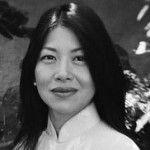
March 2011
Transformation and Liberation: Rising up from Fear to Hope
A former public defender, Karen Tse first developed her interest in the intersection of criminal law and human rights as a Thomas J. Watson fellow in 1986 after observing Southeast Asian refugees detained in a local prison without trial. She later moved to Cambodia in 1994 to train the country’s first core group of public defenders and subsequently served as a United Nations Judicial Mentor. Under the auspices of the U.N, she trained judges and prosecutors and established the first arraignment court in Cambodia. Tse founded IBJ in 2000 to promote systemic global change in the administration of criminal justice. As director, she provides the vision and direction for IBJ, and is a leader in the global criminal defense movement. She has since negotiated and implemented groundbreaking measures in judicial reform with the Chinese, Vietnamese and Cambodian governments. Under her leadership, IBJ has expanded its programming to Rwanda, Burundi and Zimbabwe and is now working to create a Global Defender Support Program that will bring IBJ assistance to public defenders worldwide. Tse is a graduate of UCLA Law School and Harvard Divinity School. She is the recipient of numerous awards and was named by the U.S. News & World Report as one of America’s Best Leaders. In 2008, Tse received the American Bar Association’s Section of Litigation International Human Rights Award which annually recognizes individuals who have made extraordinary contributions to the cause of human rights, rule of law and access to justice. The lecture is co-sponsored by the College of Law and the School of Education.
James Balog
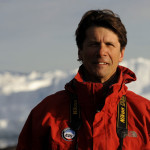
April 2013
Chasing Ice Special Screening
Chasing Ice is the story of James Balog’s mission to change the tide of history by gathering undeniable evidence of our changing planet. Within months of that first trip to Iceland, he conceived the boldest expedition of his life: The Extreme Ice Survey. Balog and his team deployed revolutionary time-lapse cameras across the Arctic to capture a multi-year record of the world’s changing glaciers.
Eric Schlosser
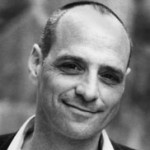
March 2011
Investigative Journalism: An Evening with Eric Schlosser
As an investigative journalist, Eric Schlosser continues to explore subjects ignored by the mainstream media and gives a voice to people at the margins of society. Over the years he has followed the harvest with migrant farm workers in California, spent time with meatpacking workers in Texas and Colorado, told the stories of marijuana growers, pornographers, and the victims of violent crime, gone on duty with the New York Police Department Bomb Squad, and visited prisons throughout the United States. His aim is to shed light on worlds that are too often hidden. Schlosser’s first book, Fast Food Nation (2001), helped start a revolution in how Americans think about what they eat. It has been translated into more than 20 languages and remained on the New York Times bestseller list for two years. His second book, Reefer Madness (2003), looked at America’s thriving underground economy. It was also a New York Times bestseller. Chew on This (2006), a New York Times bestselling children’s book, co-written with Charles Wilson, introduced young readers to the health effects of fast food and the workings of industrial agriculture. His next book, Command and Control, is about nuclear proliferation. Before trying to write nonfiction, Schlosser was a playwright and worked for an independent film company. In recent years he’s returned to those fields. The lecture is co-sponsored by the College of Human Ecology.
Bernard Amadei
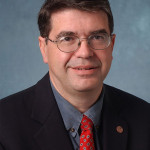
November 2010
Engineering for the Developing World: From Crisis to Development
Bernard Amadei has focused on transforming the field of engineering by revamping traditional models and establishing professional standards to integrate the field of engineering more closely with pressing global issues and needs, such as redevelopment efforts in earthquake-devastated Haiti. He is the founding president of Engineers Without Borders–USA and co-founder of the Engineers Without Borders international network. Amadei directs the Mortenson Center in Engineering for Developing Communities, and leads its overall mission to educate globally responsible engineering students and professionals who can offer sustainable and appropriate solutions to the endemic problems faced by developing communities worldwide. Amadei’s goal is to promote sustainable development, appropriate technology, service learning, and system thinking in the curriculum and research of civil and environmental engineering programs at U.S. universities. Among other distinctions, Amadei is the 2007 co-recipient of the Heinz Award for the Environment, the recipient of the 2008 ENR Award of Excellence, and an elected member of the U.S. National Academy of Engineering. He was elected an Ashoka-Knight Fellow in 2010. Amadei is currently at work on a book entitled “Engineering With Soul.” The lecture is co-sponsored by the L.C. Smith College of Engineering and Computer Science and the SU Humanities Center.
Nicholas D. Kristof
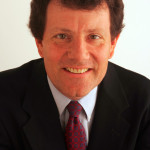
November 2010
Half the Sky
Nicholas D. Kristof, a columnist for The New York Times since 2001, is a two-time Pulitzer Prize winner. Kristof graduated from Harvard College, Phi Beta Kappa, and then won a Rhodes Scholarship to Oxford. He has lived on four continents, reported on six, and traveled to 140 countries. After joining The New York Times in 1984, initially covering economics, he served as a correspondent in Los Angeles and as bureau chief in Hong Kong, Beijing, and Tokyo. In 2000, he covered the presidential campaign and is the author of the chapter on Bush in the reference book The Presidents. He later was associate managing editor of the Times, responsible for Sunday editions. In 1990 Kristof and his wife, Sheryl WuDunn, also a Times journalist, won a Pulitzer Prize for their coverage of China’s Tiananmen Square democracy movement. Kristof and WuDunn are also authors of China Wakes: The Struggle for the Soul of a Rising Power, Thunder from the East: Portrait of a Rising Asia, and Half the Sky: Turning Oppression into Opportunity for Women Worldwide. Haunted by what he has seen in Darfur, Kristof has traveled to the region four times to provide coverage of the genocide that is unfolding there. In 2006, he won his second Pulitzer Prize for Commentary “for his graphic, deeply reported columns that, at personal risk, focused attention on genocide in Darfur and that gave voice to the voiceless in other parts of the world.” The lecture is co-sponsored by Karl Solibakke for the Bachman Conference, the School of Education, the S.I. Newhouse School of Public Communications, and the Syracuse University’s Humanities Center.
Randy Cohen
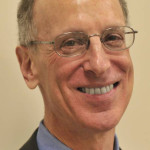
October 2010
How to be Good
Randy Cohen was born in Charleston, S.C. and raised in Reading, Pa. He attended graduate school at the California Institute of the Arts as a music major studying composition. His first professional work was writing humor pieces, essays, and stories for newspapers and magazines, including The New Yorker, Harpers, The Atlantic and Young Love Comics. His first television work was writing for “Late Night with David Letterman,” for which he won three Emmy awards. His fourth Emmy was for his work on Michael Moore’s “TV Nation.” He received a fifth Emmy as a result of a clerical error, and he kept it. He was the original head writer on the “The Rosie O’Donnell Show” for which he also co-wrote the theme music. For two years, he wrote and edited “News Quiz” for Slate, the online magazine. Currently he writes “The Ethicist,” a weekly column for the New York Times Magazine syndicated throughout the U.S. and Canada.
Kathleen Jamieson
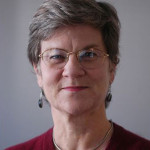
October 2010
Finding the Hidden Meanings in Presidential Messages
Kathleen Hall Jamieson is the Elizabeth Ware Packard Professor of Communication at the Annenberg School for Communication and Walter and Leonore Annenberg Director of the Annenberg Public Policy Center at the University of Pennsylvania. She will speak on presidential speeches with an emphasis on the history of the American Oratory in the broad terms of politics, media and culture. Jamieson is the author or co-author of 15 books including: Presidents Creating the Presidency (University of Chicago Press, 2008), Echo Chamber: Rush Limbaugh and the Conservative Media Establishment (Oxford, 2008) and unSpun: Finding Facts in a World of Disinformation (Random House, 2007). Jamieson has won university-wide teaching awards at each of the three universities at which she has taught and political science or communication awards for four of her books. Her forthcoming book, co-authored with Kate Kenski and Bruce Hardy, is called The Obama Victory: How Media, Money, and Messages Shaped the 2008 Election. The lecture is co-sponsored by the Department of Communication and Rhetorical Studies in the College of Visual and Performing Arts.
Majora Carter
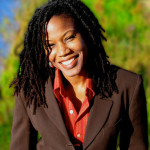
September 2010
Green the Ghetto and How Much it Won’t Cost Us
While the term “green-collar jobs” gains more press and pundits daily, very few people have actually marshaled the resources to get unemployed Americans trained and placed on pathways out of poverty in this growing economic sector. Majora Carter has. Born, raised, and continuing to live in the South Bronx, her work takes her around the world in pursuit of resources and ideas to improve the quality of life in environmentally challenged communities. She founded Sustainable South Bronx in 2001 and by 2003 had implemented the highly successful Bronx Environmental Stewardship Training (BEST) program—a pioneering green-collar job training and placement system—seeding communities with a skilled workforce that has both a personal & economic stake in their urban environment. She is currently president of the green-collar economic consulting firm, Majora Carter Group, LLC. Her vision, drive, and tenacity earned a MacArthur “genius” Fellowship. Newsweek named her one of “25 To Watch” in 2007, and one of the “century’s most important environmentalists” in 2008. Carter is a board member of the Wilderness Society, SJF, and CERES. She hosts a special national public radio series, “The Promised Land,” on the Sundance Channel. The lecture is co-sponsored by the Syracuse Center of Excellence in Environmental and Energy Systems.